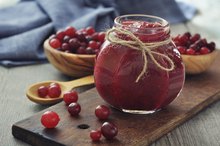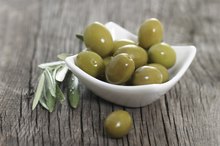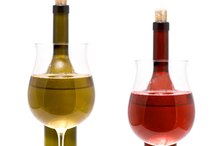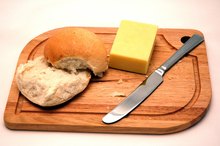What does fact checked mean?
At Healthfully, we strive to deliver objective content that is accurate and up-to-date. Our team periodically reviews articles in order to ensure content quality. The sources cited below consist of evidence from peer-reviewed journals, prominent medical organizations, academic associations, and government data.
The information contained on this site is for informational purposes only, and should not be used as a substitute for the advice of a professional health care provider. Please check with the appropriate physician regarding health questions and concerns. Although we strive to deliver accurate and up-to-date information, no guarantee to that effect is made.
Potassium Bisulphite as a Food Preservative
Preservatives are a food safety measure used to prolong shelf life and keep foods from spoiling. Potassium bisulphite is a food additive that inhibits the growth of bacteria, mold and yeast, and it helps prevent food discoloration. Some people may need to avoid any food that contains this particular additive, however.
About Potassium Bisulphite
Potassium bisulphite, also spelled "bisulfite," is sometimes referred to as a sulfite salt; it falls into the same category of food additives such as sodium sulfite, potassium sulfite and sodium bisulfite. Potassium bisulphite is a white powder that dissolves in water but not in alcohol. Unlike other sulfur salts such as sodium sulfite, potassium bisulphite has a sulfur smell. It is considered a legal food additive in the United States, according to Thomas E. Furia, author of "CRC Handbook of Food Additives, Second Edition, Volume 1. 1"
- Potassium bisulphite, also spelled "bisulfite," is sometimes referred to as a sulfite salt; it falls into the same category of food additives such as sodium sulfite, potassium sulfite and sodium bisulfite.
How It Works
Malic Acid Vs. Citric Acid
Learn More
When potassium bisulphite is dissolved in water, it forms a sulfurous acid. The acid lowers the pH of the food, which helps inhibit the growth of harmful organisms, including bacteria such as E. coli, as well as yeast and mold. The bisulphite also prevents browning or discoloration of food Potassium bisulphite is more stable than potassium sulfite. In humid conditions, however, the dry salt may oxidize and lose some of its antimicrobial power.
- When potassium bisulphite is dissolved in water, it forms a sulfurous acid.
- The bisulphite also prevents browning or discoloration of food Potassium bisulphite is more stable than potassium sulfite.
Food Sources
Sulfite food additives such as potassium bisulphite are most often found in wine. But you may also find potassium bisulphite in dried fruit -- such as apricots and peaches -- and it's often found in dehydrated vegetables, such as potatoes and carrots. It may also be used as a preservative in cut fruit, such as apples, to prevent browning.
Safety Concerns
Sodium Erythorbate Side Effects
Learn More
People with sulphite sensitivity might react poorly to potassium bisulphite. A sulphite sensitivity usually causes asthma symptoms such as wheezing or difficulty breathing. Some people may also experience anaphylaxis, which is a life-threatening allergic reaction. If you have a sensitivity to sulphites, you should avoid any food that contains potassium bisulphite.
- People with sulphite sensitivity might react poorly to potassium bisulphite.
- A sulphite sensitivity usually causes asthma symptoms such as wheezing or difficulty breathing.
Related Articles
References
Writer Bio
Jill Corleone is a registered dietitian and health coach who has been writing and lecturing on diet and health for more than 15 years. Her work has been featured on the Huffington Post, Diabetes Self-Management and in the book "Noninvasive Mechanical Ventilation," edited by John R. Bach, M.D. Corleone holds a Bachelor of Science in nutrition.









